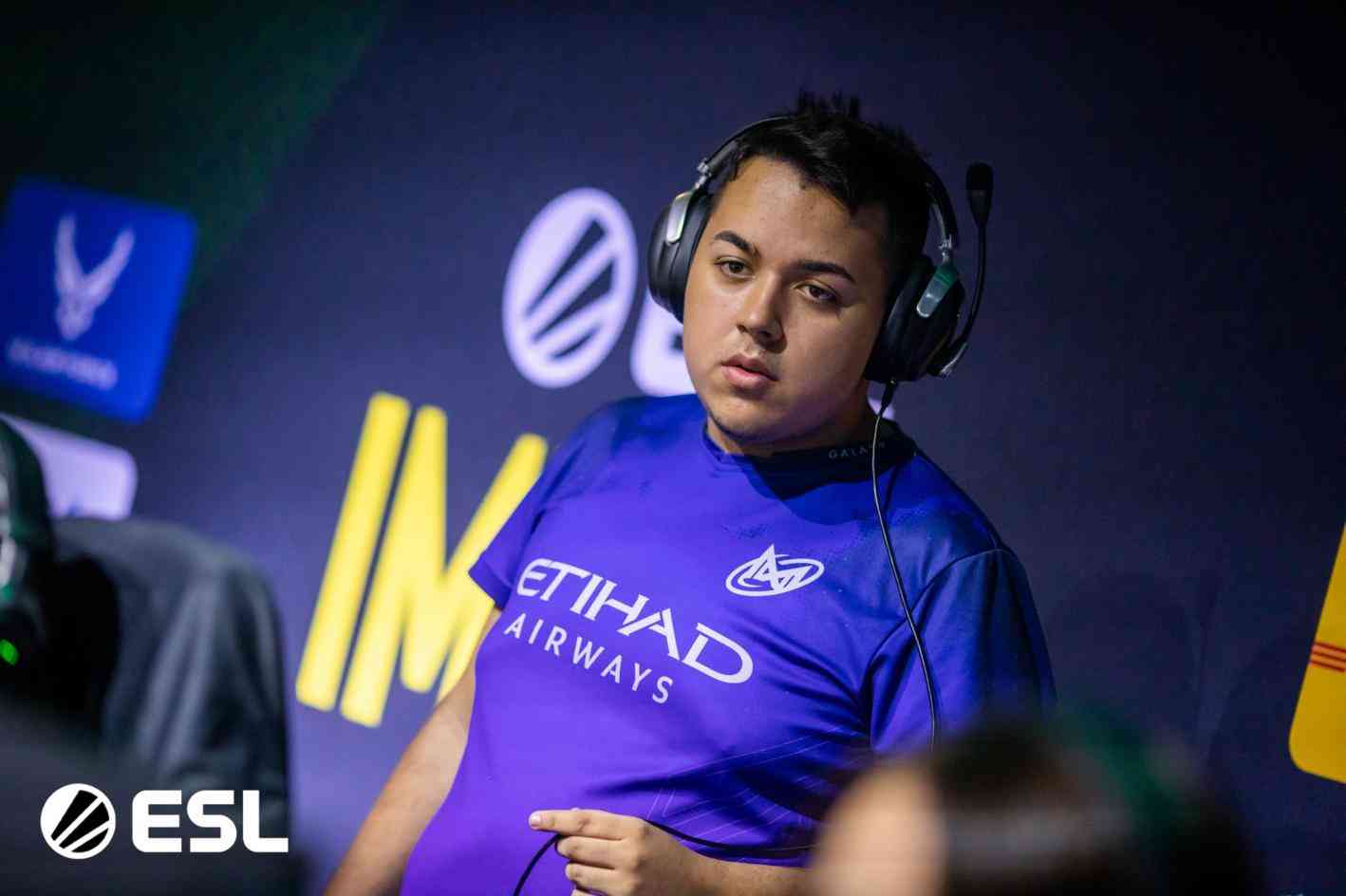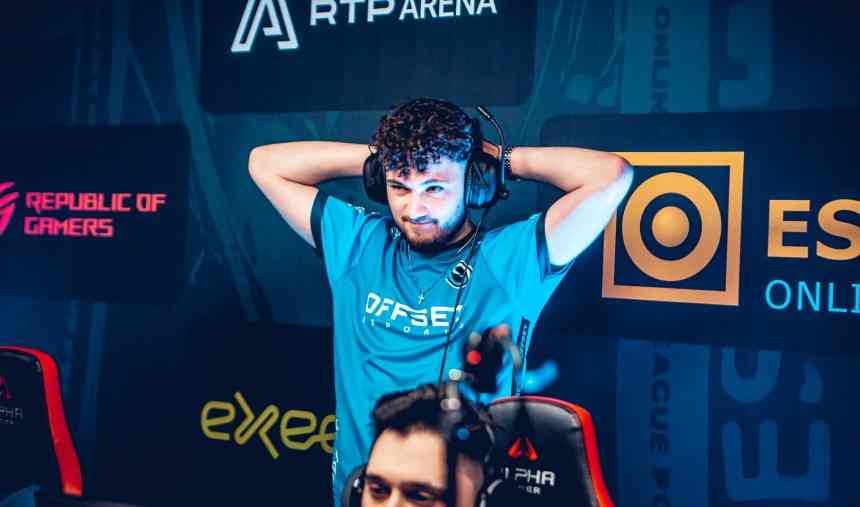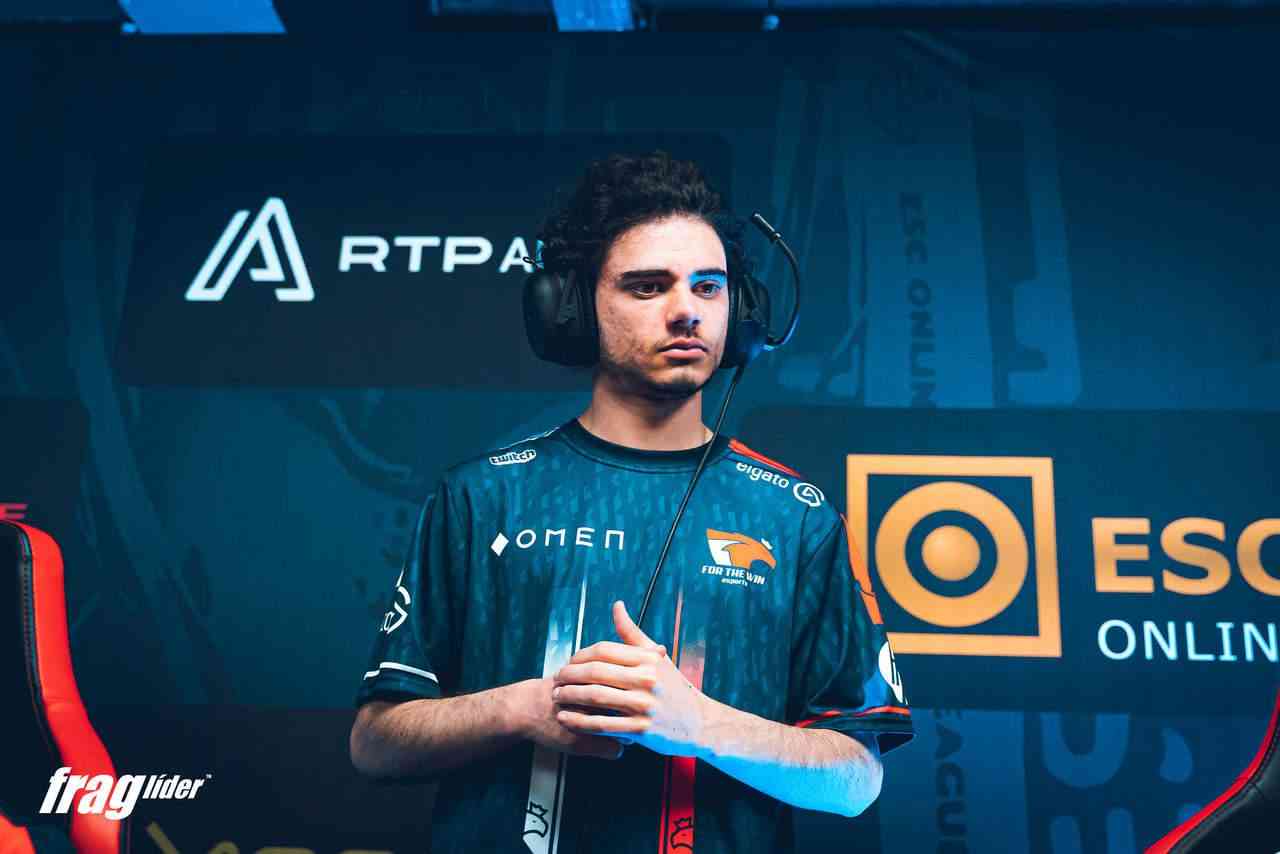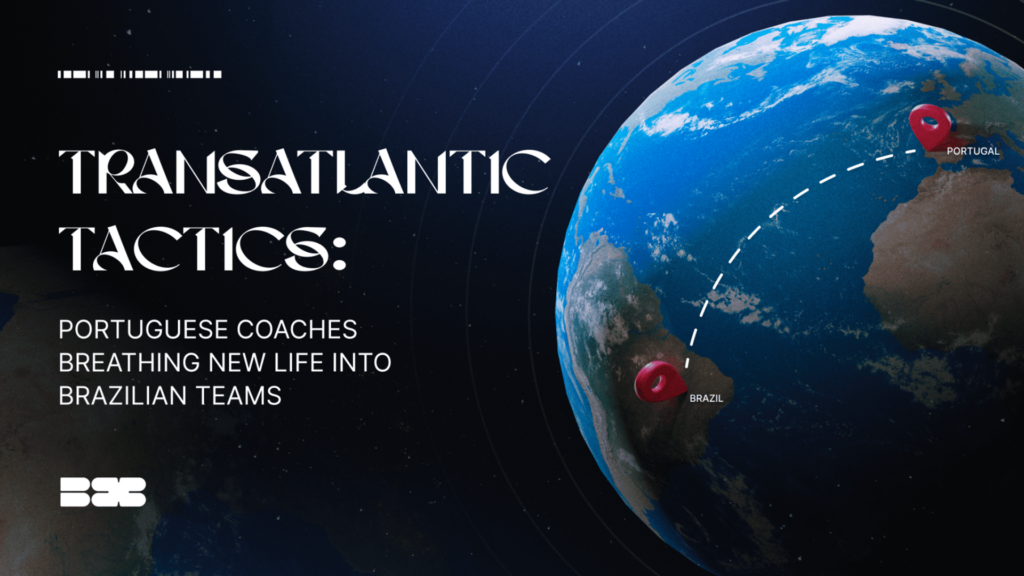The phenomenon that began in 2019 with football has now reached the Counter-Strike scene in Brazil. We’re talking about the migration of Portuguese coaches to coach Brazilian teams. Why are Portuguese coaches making the switch? 5 Coaches in CS:GO are Portuguese and work with Brazilian teams, and BLIX spoke to all of them about why they’ve made the switch and the reasons behind their decision.
Ricardo ‘JTR’ Júnior was the first to make the move. The current coach of ODDIK, which includes well-known names in the scene such as Adriano “WOOD7” Cerato and Matheus “Tuurtle” Anhaia, joined the team in April of this year.
Former Ningma Galaxy coach JTR reveals how the opportunity to coach ODDIK came about: “When I was in Poland at a boot camp with my former team, Nigma Galaxy, I met them, and they were all very good people, later, when I decided to leave Nigma, I had an offer from them, and I wanted to have the experience of working in the Brazilian scene.’
Cristiano ‘D10S’ Carvalho stood out at For the Win, helping the team as coach in the historic feat of qualifying the first Portuguese team for the ESL Pro League, at the time Season 16. The opportunity for the Portuguese coach, who currently coaches the Filhos do D10S after changes in FTW, emerged in a different way as the young coach explained to BLIX.GG:
‘The opportunity to work in Brazil is relatively far-fetched. I’ve always been a person who tries to help others, using my contacts, number of followers and “European fame” to cause well-being in those around me. In this sense, at the end of 2022, in a Gaules broadcast, I was watching a game between Fluxo and a group of beginner friends. One of the newcomers stood out in the match even though he had lost, and I felt it was a good opportunity to look at his social media and make his day a little more special by sending a personal message praising him, providing help, and enhancing his dream. I ended up getting closer to the guy and it was from then on that I started watching some of his training sessions sporadically until I got closer and got to know the scene more and more. All of this accelerated my decision to come to the Brazilian scene, and it is one of the best things that could have happened to me.’
 (Image Credits: ESL)
(Image Credits: ESL)Miguel ‘ner0’ Videira, who is currently with Meta as their Head Coach, started as an assistant coach with Arctic in Brazil and instantly noticed the difference between the players in each region: ‘The mentality in Brazil is very different, in a positive way, and that captivated me. It’s been an experience. quite good.’ ‘ says ner0.
Lucas ‘zander’ Carvalho and Duarte ‘Deco’ Carvalho are the most recent arrivals to the Brazilian scene from Portugal. They currently train smaller teams in the region: AJF Esports and Woody’s Kids, respectively.
The dichotomy of Brazil and Portugal
As a scene, Portugal has its draws. Ricardo “fox” Pacheco is its most prominent figure, with good experiences in international teams in the past, and SAW with consistent results in European tier 2. And yet, we still see coaches leave who could help develop a scene in need of growth.
So, what attracts Portuguese coaches to work with Brazilian teams? What are the main differences between both regions’ working methods and tactical levels? These were some of the questions we asked.
‘In Brazil, players respect and value the technical team much more. They are more professional and dedicated.’ reveals ner0. However, the practices are something to work on: ‘Due to Europe being a wider region of teams, training in Europe is of much higher quality and diversity than in Brazil, which greatly affects the quality of training here.’
 (Image Credits: E2Tech/João Carvalho)
(Image Credits: E2Tech/João Carvalho)D10S dived deeper into the differences between the regions:
‘Tactically speaking, CS in Brazil is less methodical and protocolized and is also much faster. Fast not in the sense of decision but in the sense of round speed.’
D10S noticed that in comparison to European teams, Brazilian teams place a heavy emphasis on the first 30 seconds of a round.
‘The first 30 seconds of the round are much more important here in the Brazilian scenario than in Europe, where rounds are much more often decided closer to the end of the clock.’
‘In any case, the CS style in Brazil is a valid and exciting style and has evolved a lot. It’s a scenario in which we increasingly see 20-30 teams with similarities to the European CS. Even some teams without organization are a lot of work for anyone else because access to information, access to what needs to be done to be professional, is much easier.’
‘As for the work methodology, most organizations in Brazil work on equal terms when compared to Europe and better than what I was used to in Portugal, of course, with the disadvantage of not having as much quality and diversity in practicing, something that Europe will always stand out.’
 (Image Credits: FraglÃder)
(Image Credits: FraglÃder)For JTR, the Brazilian style is repetitive and too predictable. For a coach with European experience, they sometimes struggle with the early aggressive strategies that the players are comfortable with.
“At a tactical level, I think Brazil is more random but at the same time more predictable because they always repeat a lot of things from the previous game,” says JTR.
Deco says it’s easier to find practices in Europe and while Zander explains: “At a tactical and working method level, there are significant differences between Europe and Brazil. In Brazil, greater importance is given to the creativity and individual skill of players, while in Europe there is a greater emphasis on organization tactics and discipline.”
Portugal ‘ An unattractive scene
The coaches are in a consensus regarding the change of scenery from Portugal to Brazil. On top of the language being the same, other factors come into play.
‘Currently in Portugal, it is very difficult to be a professional due to the low number of organizations that offer really good conditions, which has been decreasing. In short, in the Brazilian scenario, there are many more opportunities to be professionals in this area.’ ‘ says ner0.
‘In the Portuguese scene, very few teams are able to offer a salary that makes sense to focus on CS as a job’ – comments JTR.
For deco, the conversation is mostly about support: ‘Portugal unfortunately doesn’t have as much support as here, and the mentality isn’t very equal either in support. I’m talking about organizations that can support players, and in terms of mentality, I’m saying that to be good, you need to work hard, and many of the players end up not doing this; really, those who work hard always end up being rewarded’.
‘As for the Portuguese scenario, I don’t believe that there are attractive tools and projects other than one or two teams, and the Brazilian market offers opportunities in terms of being able to make a living from it and a larger market to grow professionally‘ ‘ says Zander.
D10s talks about the overall Portuguese scene: ‘For me, a Portuguese coach, at the moment, can practically only be successful in the international market. Brazil is very attractive because of the language but above all because of the value given to a European coach. The Portuguese scene at the moment is unattractive. There are only two professional organizations in Portugal and the coaching vacancies in these organizations are very busy. Furthermore, the “Gap” between the two best organizations and the others is huge and therefore the margin to evolve, shorten the path and professionalize is small and in my opinion, it may never happen.’
With the lack of opportunities in the Portuguese Counter-Strike scene and the ease of the language on the other side of the Atlantic Ocean, several coaches saw Brazil as an opportunity to make their dream of working with the game come true. It remains to be seen whether the impact of Portuguese coaches will be long-term and whether more will join this trend.


